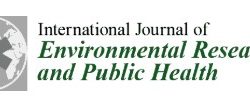Breast Cancer Research in Canada
Empower yourself with knowledge: How CanPath is reshaping breast cancer research in Canada For decades, race and ethnicity have been largely missing from breast cancer research in Canada. The Canadian Partnership for Tomorrow’s Health (CanPath) is working to close that gap by studying how screening participation, treatments, risk factors, and outcomes differ across racial and ethnic groups, with the goal of informing more equitable, evidence-based screening guidelines. CanPath is Canada’s largest population health study, supported by over 330,000 participants across Canada who provide life-changing health data to help our researchers uncover important links between lifestyle, genetics and health. This October is Breast Cancer Awareness Month and with a recent $300K investment from the Public Health Agency of Canada (PHAC), CanPath is highlighting the amazing work from our researchers to examine differences in breast cancer screening participation, treatments, and outcomes by race and ethnicity, and identify how risk factors vary across groups. Through this research, CanPath plans to inform more equitable screening guidelines and prevention approaches by providing currently missing data on race and ethnicity, helping to ensure that breast cancer screening reflects the diverse needs of all Canadian women. “Empower yourself with knowledge about your personal risk factors, family history of disease and seek out regular screening given that 1 in 8 women will be diagnosed in their lifetime,” advises Prof. Victoria Kirsh, CanPath’s Scientific Coordinator and Assistant Professor at the Dalla Lana School of Public Health (DLSPH). “CanPath is an amazing resource with a rich data set on lifestyle, environment, genetic, and dietary data so the research possibilities are really endless”. CanPath is committed to a future without cancer and is dedicated to providing the necessary research to transition this goal into reality for all women. What has been missing Canada’s population continues to change with a growing diverse population, yet little information is out there about the effects of race and cancer outcomes. Genetics, lifestyle and environment all play key roles in risk for cancers however the effect of race remains understudied. “I think the project as a whole is inspiring to begin with, we’re looking at racial disparities in breast cancer outcomes, and that’s something that has been on the back burner or not even investigated for a really, really long time,” highlights Fatima Zulfiqar, a CanPath practicum student who spent her summer supporting this project’s development. “I know that there are various women of color who have certain predispositions when it comes to breast cancer and so having this conversation and looking at the nuances that race plays in breast cancer outcomes is important.” Historically, marginalized groups have been left out of research, leading to issues with generalizing findings to a larger population. Issues with accessibility to breast cancer care continue to persist and require a deeper dive to tear down the barriers within healthcare. “It’s very important to study [breast cancer] and look at it and understand it from a real life perspective of how it’s impacting women, who are seeking care or not seeking care and what those differences are and how we can probe them and explore them and hopefully make breast cancer care and diagnosis more accessible to all of them,” said Marilla Hulls, an MPH Epidemiology practicum student who supported another CanPath project objective related to breast cancer screening. Be the link that bridges the gap Much remains to be uncovered in breast cancer research, and CanPath is committed to supporting young researchers in their journey to create a long-lasting impact within the field. These upcoming researchers are working to close evidence gaps in breast cancer risk, screening and outcomes across racial and ethnic groups in Canada. “If you’re looking for an area that’s really impactful, we know that breast cancer affects a lot of people in Canada. Even if it’s not yourself that has breast cancer, you probably know someone who has breast cancer or who has been affected,” says Ashley Mah, a doctoral student working on the project. “This is a really great area of research to work in and it’s really collaborative and you get to meet so many amazing people including clinicians, other researchers, students, trainees as well as patients”. Breast cancer research is only made possible by the participation of Canadians who offer their information to provide the necessary data to drive new discoveries. Our participants make it possible to analyze patterns in screening, diagnosis and treatment across diverse communities and their dedication does not go unappreciated. “Going through the process has taught me a lot. Those numbers are not just data points, they’re actually human beings, they have volunteered their information to help us make our research move forward and it’s very rewarding,” says Feifan Xiang, a data analyst for the study. More to be done Acknowledging the effect of breast cancer on the public is just the beginning of a dedicated investigation to making breast cancer screening more widely available, comprehensive and culturally appropriate to ensure women everywhere receive the care they need. CanPath is continually working to link cancer databases with participant information to analyze screening results, including recall and biopsy rates, and inform more equitable prevention, detection and treatment strategies in Canada. For more information, please contact: Megan FlemingCommunications & Knowledge Translation OfficerCanadian Partnership for Tomorrow’s Health (CanPath)info@canpath.ca






